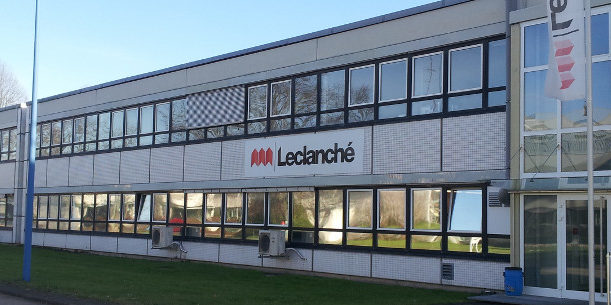Swiss-based energy storage solutions provider, Leclanché SA has presented its 2017 financial results. Even though the numbers do not look promising, the company's leadership is adamant that delays in the delivery of systems are to blame, rather than empty order books.
Recording another net loss, this time of CHF -38.5 million ($ -38,4 million) (2016: CHF – 37.2 million), a negative EBITDA of CHF 31.8 million (2016: CHF -28.4 million) and decreasing consolidated revenues CHF 18 million (2016: CHF 28.4 million), the numbers do not look promising. Overall, it does not expect to record a positive EBITDA before 2020.
Despite this, CEO, Anil Srivastava, remains upbeat, stating, “The opportunity for Leclanché is now.” He attributed the poor financial performance to funding delays in growth capital, which impacted the delivery of a number of projects.
Last February, the company announced a 450 MWh pipeline, and a breakeven point for 2018. Analysts back then were already sceptical, however, and were proven right, when the pipeline was not delivered on.
“The funding is now secured, all projects are now being executed and the resulting lost revenues in 2017 will be generated and accounted for in 2018,” continued Srivastava, adding that the company is “well on our way to hitting the milestone of 100 MWh of storage projects in operation by 2018.”
Indeed, Leclanché's order books represent 50 MWh for 2018, while total installation is expected to reach the 100 MWh mark by the end of the year. The revenue of the current pipeline is also expected to hit CHF 50 million, creating a serious upwards trend, if Leclanché can deliver the pipeline.
New grid applications new markets
The market for storage systems is a picking up pace, as improved technology and reduced production costs have let prices drop to competitive levels. Additionally, governments have started introducing necessary legal frameworks and market rules for energy storage applications. In some markets, storage applications can participate in the wholesale, capacity and ancillary energy markets, which has made storage systems considerably more profitable.
“The electricity and transport industries are experiencing unprecedented changes and Leclanché has never been better positioned to meet the needs of both the disruptors and the incumbents who are changing the way we produce, distribute and consume electricity and the way we transport people and products, as we move towards a clean energy future,” says Srivastava.
Storage technologies have become an increasingly affordable solution to bring electricity to remote places in Asia, Africa and Latin America, which are promising markets. According to a World Bank report, the Asian market alone will reach 15 GW of installed storage by 2025, accounting for the largest chunk of the market at that time.
It comes as no surprise then, that Leclanché has also announced that it is currently in an advanced stage of Joint Venture negotiations for sales and productions in India and China. If closed, the deals will deal with both stationary and transport storage applications in both China and India. Withholding further details on the nature of the deal, Leclanché hopes to further underline its promising business outlook.
Recently, Leclanché announced a partnership with Imeon Energy, a developer of smart inverters and of solar installations. Together they have brought a solution combining Leclanchés storage systems and Imeon’s inverters to the market. The solution, called PowerPack, is available only on the Swiss market, as it has been designed to tap into a lucrative CHF 100 million subsidy scheme.
Similarly, the wheels are moving for Leclanché in Germany, with the recent announcement of a cooperation with wind farm operator, Enertrag AG. Leclanché’s 22 MW battery is supposed to deliver primary control power, reducing dependency on coal plants.
“The opportunities have never been so exciting for Leclanché. Our organisation and expertise are geared entirely towards capitalising on what we see as a paradigm shift in these industries,” comments Srivastava.
This content is protected by copyright and may not be reused. If you want to cooperate with us and would like to reuse some of our content, please contact: editors@pv-magazine.com.




By submitting this form you agree to pv magazine using your data for the purposes of publishing your comment.
Your personal data will only be disclosed or otherwise transmitted to third parties for the purposes of spam filtering or if this is necessary for technical maintenance of the website. Any other transfer to third parties will not take place unless this is justified on the basis of applicable data protection regulations or if pv magazine is legally obliged to do so.
You may revoke this consent at any time with effect for the future, in which case your personal data will be deleted immediately. Otherwise, your data will be deleted if pv magazine has processed your request or the purpose of data storage is fulfilled.
Further information on data privacy can be found in our Data Protection Policy.